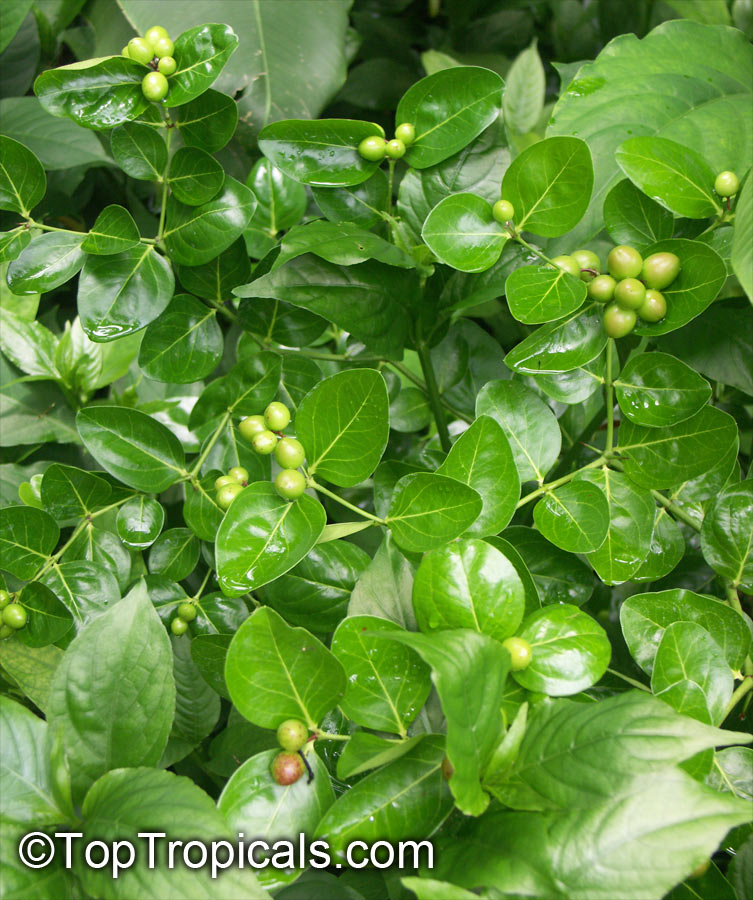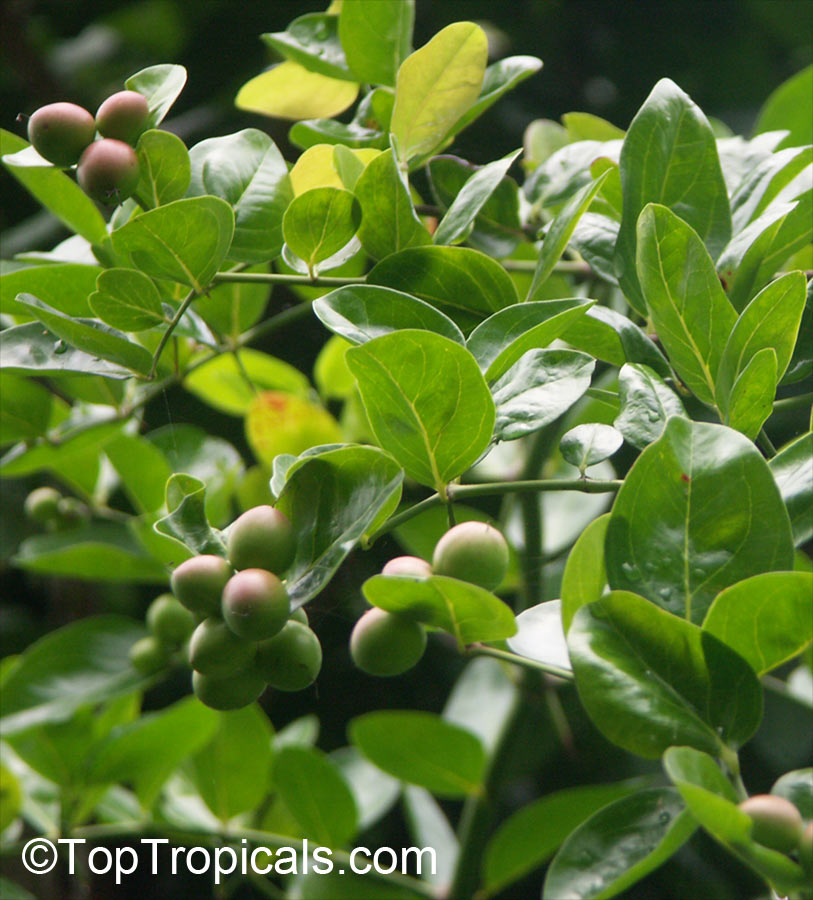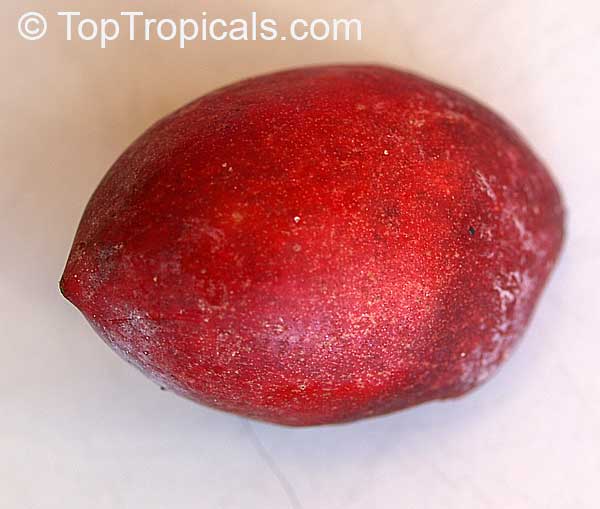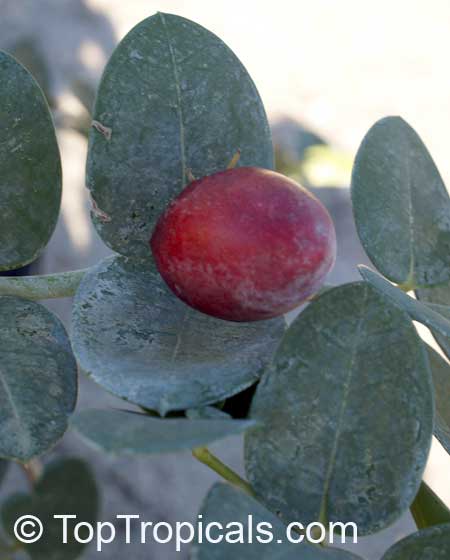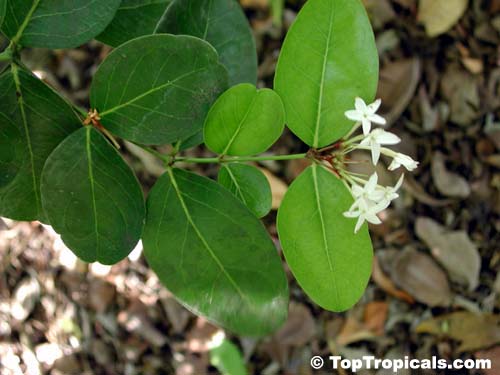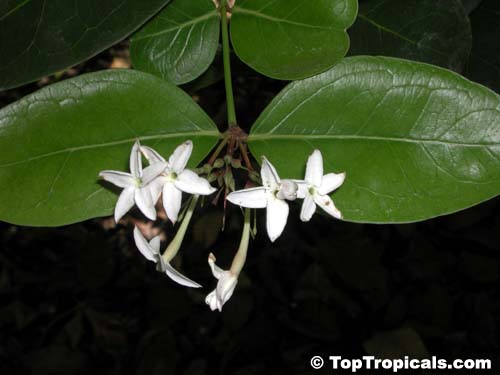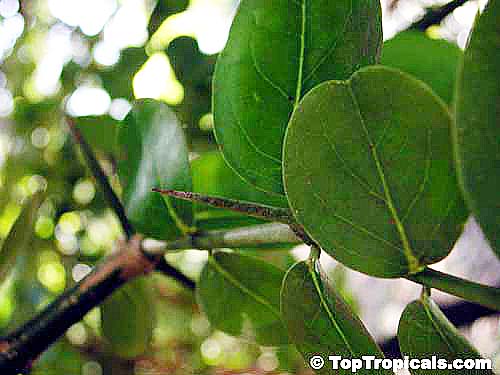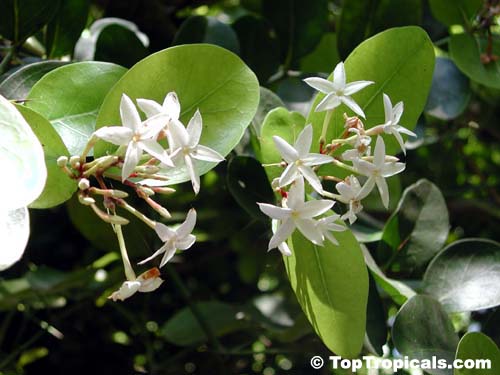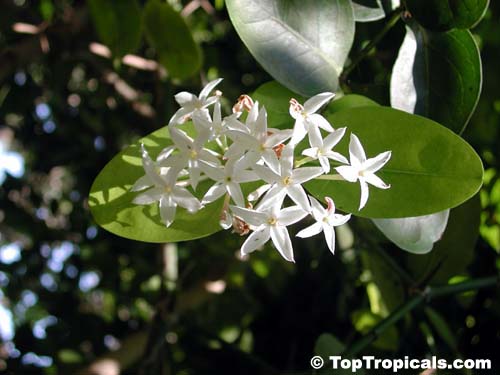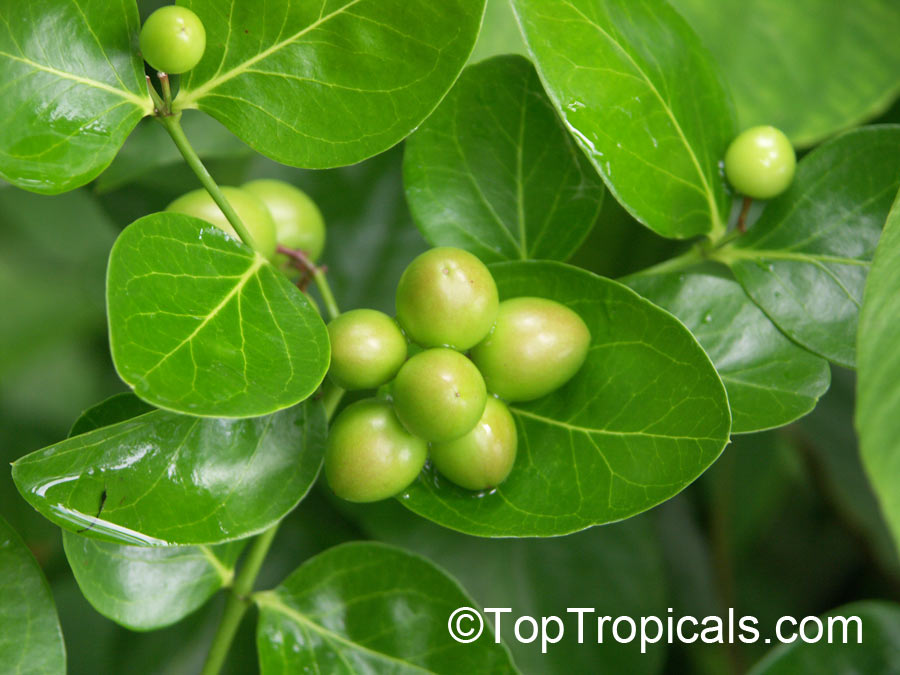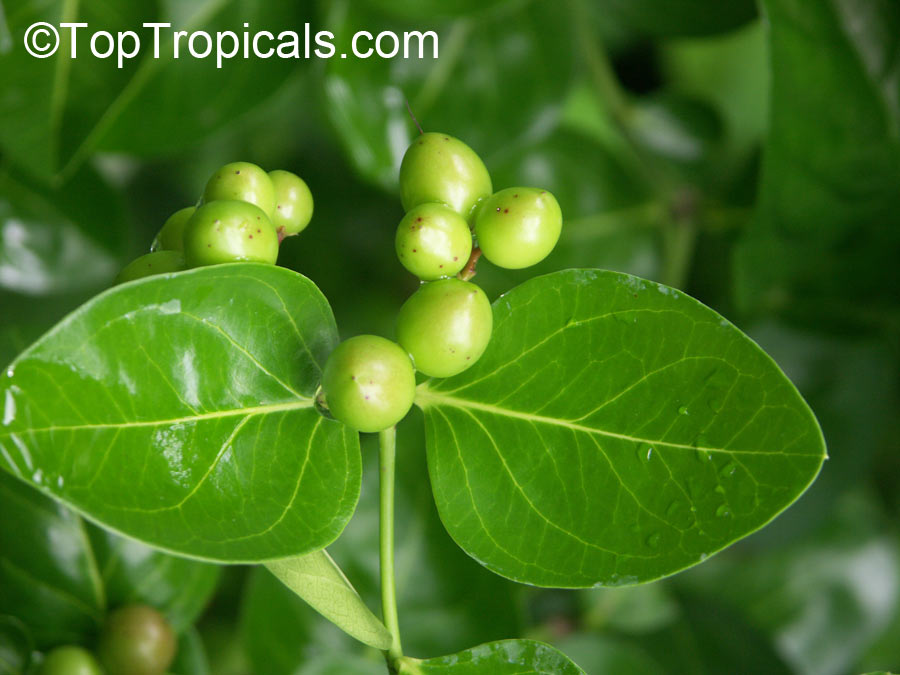Carissa carandas (Karanda)
Botanical name: Carissa carandas
Common name: Karanda
Family: Apocynaceae
Origin: India










The caranda shrub will begin to fruit in its second or third year from seed.
Carissa carandas (Karanda) is a small tree native to India. It grows up to 10-20 ft tall and requires full sun and moderate water. It is an ethnomedical plant with white or off-white flowers that are fragrant and attractive to butterflies, hummingbirds, and other pollinators. It has thorns or spines and is sea or salt tolerant. It can grow in USDA Zones 9-11.
The fruits of the Karanda tree has many uses and is high in nutrients. The ripe fruit has a sweet taste and can be eaten raw, while the unripe fruit has a sour taste and is used medicinally as an astringent. The ripe fruit has been used to treat biliousness and scurvy, and is thought to have a range of other healthy benefits. The tree is capable of producing up to 50-60 fruits a season.
Karanda is best suited to a deep, well-drained soil, and if the soil is too wet, it may be prone to excessive vegetative growth and lower fruit production. This plant can be grown in pots in colder regions, and needs to be given extra protection in winter. It can also be trained into a hedge. As with many other plants, the Karanda is usually propagated by seed, taking around two or three years to produce fruit.
